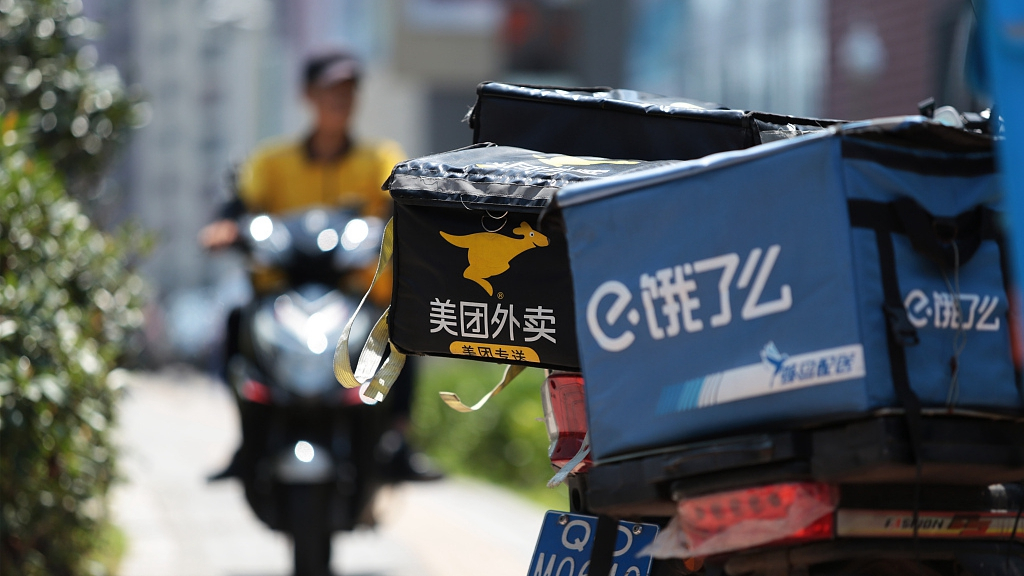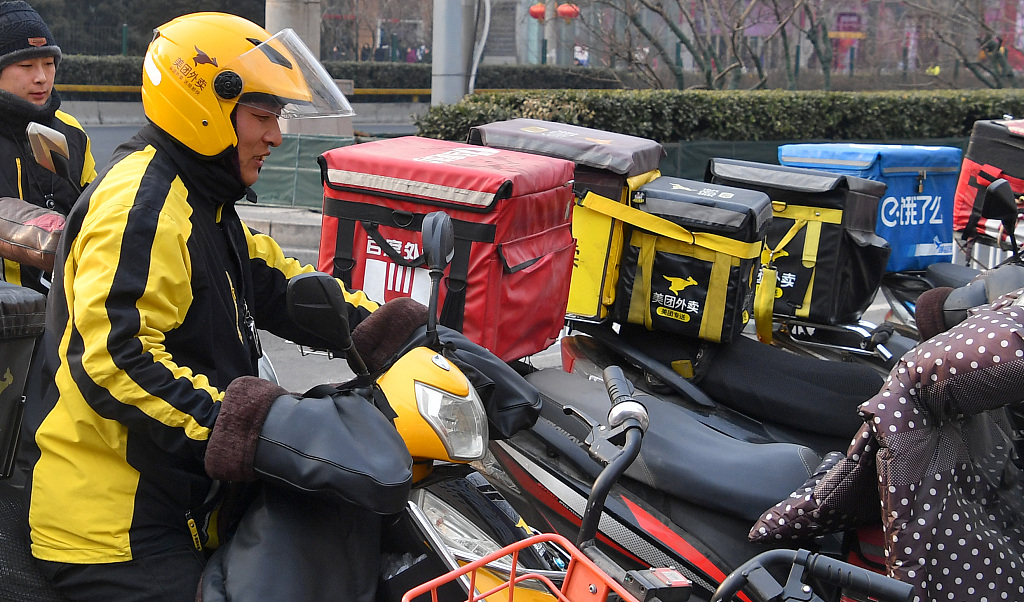
China's established home delivery system plays an important role in getting food and other necessities to residents during COVID-19 quarantine and lockdown. /VCG
China's established home delivery system plays an important role in getting food and other necessities to residents during COVID-19 quarantine and lockdown. /VCG
Editor's note: Matteo Giovannini is a finance professional at ICBC in Beijing and a member of the China Task Force at the Italian Ministry of Economic Development. The article reflects the author's views, and not necessarily those of CGTN.
The outbreak of COVID-19, which has deeply affected the lifestyle of everyone in China during the first quarter of 2020, is slowly coming to an end, with people rapidly going back to work in almost every industry and with the reopening of Wuhan after a 76-day lockdown.
In this regard, the successful outcomes could have never been possible without the admirable effort of doctors and nurses on the front line, citizens constantly remaining locked in their homes, community workers and volunteers dedicating their time and authorities supervising the whole recovery process.
One category of people that sometimes are not adequately mentioned or celebrated by media are the delivery drivers that, with their work, especially during a difficult period of time for the entire nation, have continued to do their job in silence without being noticed in most cases but have had a social and economic impact far more important than what it is normally considered.
The delivery service in China has become over the years a commodity, something that people have always taken for granted, and the emergency created by the spread of the virus has simply enhanced an ongoing social and economic process with delivery companies that have registered increases of their business up to 300 percent compared to the same period last year.
The rapid development of the delivery service in China can be firstly found in the availability of a large number of delivery men, mainly people moving from rural parts of China to urbanized area in search of more remunerative job opportunities and able to work every day for very long hours in order to send enough money back to families in their hometown.
The rapid digitalization of Chinese society – due to a very high internet penetration and widespread use of smartphones among the population – has clearly had a major impact on the development of the delivery service, with platforms and dedicated apps created by high-tech companies.
Government initiatives, such as the New Urbanization Policy, which is transforming China into a domestic consumption-driven economy, have created densely populated areas that can be easily covered and served by a vast number of delivery drivers within a few minutes' ride.
The role of delivery service has represented a backbone of the whole Chinese society during the over two months of lockdown when the majority of retail businesses have had no choice other than to stop their activity and entire industries have faced severe cash flow problems.

Meituan delivery riders wait for food delivery assignments. /VCG
Meituan delivery riders wait for food delivery assignments. /VCG
In particular, the food and beverage industry, one of the most affected by the lockdown policy, has been able to guarantee the survival of its business thanks to the online revenue stream provided by the delivery service.
Moreover, the importance of delivery has to be found in its absolute central role in the prevention of spreading COVID-19. The lockdown policy has forced entire families to stay home, preventing them from going outside even to buy necessities such as food in order to isolate individuals and avoid further contagion.
The opportunity to order food and other products through smartphones and to receive them comfortably at the entrance of residential compounds, avoiding human-to-human contact, has been a decisive move in the effort to contain the spread of COVID-19.
On the contrary, what is happening now in Europe, where the contagion is out of control, is due to the fact that in Italy, Spain and France, there is no such developed delivery infrastructure and this largely explains the daily long queues at local supermarkets of people in desperate need of buying necessity goods.
China's delivery service has provided a sense of security among people during the strict lockdown policy, preventing episodes of absolute panic and social unrest that have been seen in the U.S., where there are cases of people emptying shelves at supermarkets or getting into fights over the last item of a desired product.
In China's case, the advantage to rely on a well-developed and technology-driven delivery service guarantees a constant supply of products ready to be delivered directly from factories or large warehouses with constant replenishment while, on the contrary, retail stores tend to be replenished at a slower rate in foreign countries.
In my view, there are two distinct categories of heroes that should be praised for their sacrifice at a time of extreme danger such as COVID-19. While doctors and nurses have taken care of sick people in hospitals, delivery men have taken care of healthy people and families at home.
Both categories must be applauded and celebrated for their effort at a time of emergency, and must not be forgotten when COVID-19 becomes history and life returns to normal.
(If you want to contribute and have specific expertise, please contact us at opinions@cgtn.com.)